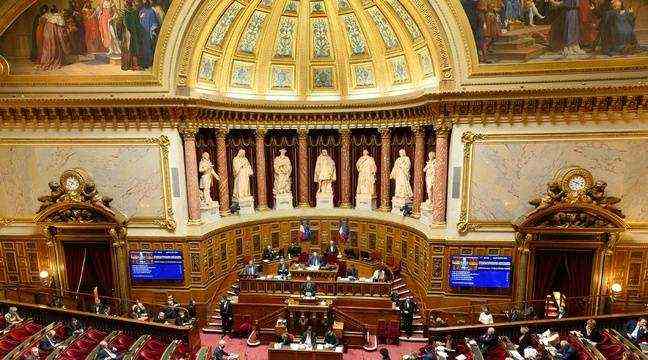The Senate makes its voice heard. Dominated by the right-wing opposition, the Upper House of Parliament on Thursday engaged in a standoff with the government by reducing from July 31 to February 28 the extension of the braking measures against the Covid-19 epidemic and by providing for an exit territorialised health pass.
The bill on “various provisions for health vigilance”, very largely revised by the senators, was voted on at first reading by 158 votes in favor (the majority of the LR and centrist groups) and 106 against. The Socialists abstained. Voted against, in addition to the majority RDPI groups En Marche, CRCE with a communist and environmentalist majority, 21 LR senators, 11 centrists and the majority of the RDSE groups with a radical majority and Independents.
Negotiations in sight
For the leader of senators LR Bruno Retailleau, the amended text “bears the mark of the Senate”, both “guardian of public freedoms” and “concerned about the balance of powers”. Deputies and senators will try to agree next week on a common version in a joint committee, a challenge as the positions have diverged. In the event of failure, the National Assembly will have the last word.
The government “is determined to retain the month of July 2022 as the horizon,” Minister Brigitte Bourguignon said at the start of the debates. Refusing to give “a blank check”, the senators reduced the deadline from July 31 to February 28, the date of the planned suspension of parliamentary work before the electoral deadlines.
LR reporter Philippe Bas considers that “three and a half months is fine, eight and a half months is too much”. It is up to the government to return to Parliament to continue beyond, if the health situation so requires. The centrist Nathalie Goulet judged the date of February 28 “reasonable”, refusing to “play Russian roulette” by giving “full powers” to a new president not yet elected.
Pass in the process of extinction
The Senate also put the health pass “on the verge of extinction”, in the words of the rapporteur. At the end of a heated debate in the hemicycle, coupled with backstage meetings between the LR and PS groups, an amendment was adopted by Marie-Pierre de La Gontrie (PS), completed by Jérôme Bascher (LR).
The “compromise” thus obtained, but to which the government does not subscribe, aims to territorialize the use of the health pass from November 15. It would be limited to departments that have not reached a vaccination rate of 80% of the eligible population and in which an active circulation of the virus is observed. This rate of 80% will be reached on November 15 in all metropolitan departments, according to Ms. de La Gontrie.
The imposition of the health pass would nevertheless remain possible to access establishments welcoming vulnerable people in all the departments. On the other hand, the Senate rejected the amendments aimed at the outright abolition of the health pass. The Minister of Health Olivier Véran believes he does not have “sufficient perspective at this stage” to “deprive himself of a tool that is functional” and “very well accepted by people”.

